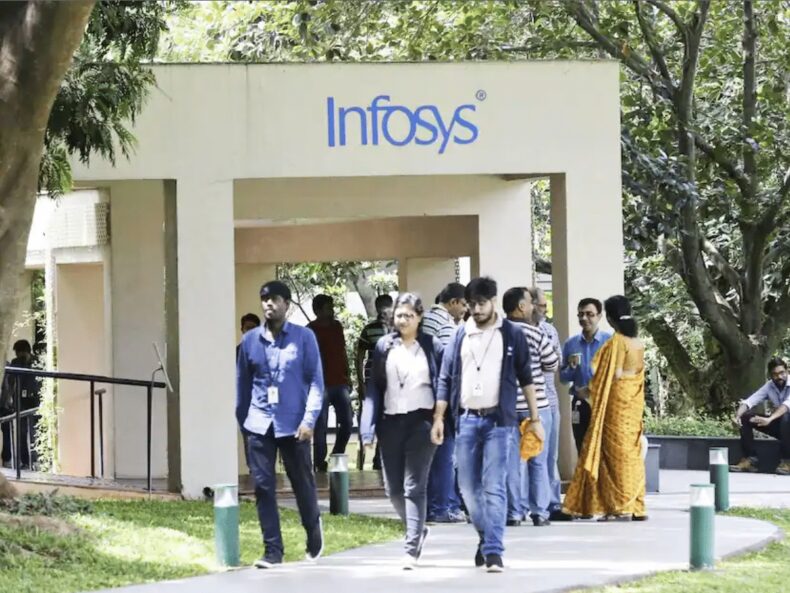Employees at Infosys are permitted to accept gig employment outside the organization with the management and human resource executives’ prior consent. This coincides with the rising practice of moonlighting among Indian tech professionals.

Infosys has now allowed employees to take on “gig” jobs on the side, with the approval of supervisors, provided that the employee does not compete with the company, or its clients, or present a conflict of interest.
The corporation explained how staff members can take on “gig” labor in an internal email to their employees.
This decision will help the business handle specific attrition issues because it will allow staff to pursue their interests in technology while also pursuing new sources of income, albeit with strict restrictions.
According to the email, care must be taken to make sure that these projects adhere to the business’s policy for gig work, don’t violate client contracts, and don’t interfere with the employee’s capacity to perform well in their full-time position with Infosys. It noted that employees must discuss all of these standards with their managers before undertaking such jobs. In a letter sent to their employees, the company placed high importance on the capacity to continuously pick up new knowledge and experience. They also welcome Infoscions to take on other initiatives during their free time when necessary.
Sahil Parekh, the current CEO of Infosys, revealed during a post-earnings conference that the Bengaluru-based business has an internal platform called Accelerate where employees can choose to take on side jobs in addition to their primary projects at Infosys. Each quarter, the platform receives 4,000 applications, of which 600 are accepted.
The most recent action comes at a time when the controversy about moonlighting is grabbing media attention. Moonlighting is the practice of employees doing multiple jobs at once by taking on side employment.
Previously, Infosys had made it plain in the company’s Q2 earnings that the company does not support moonlighting and that it had terminated individuals who were engaged in multiple jobs or side Gig over the previous 12 months.
Moonlighting has been a topic of discussion in the business world for a while. Techies working for other firms have become a trend and a source of concern in the sector, with startups routinely making very alluring offers to use the talent of those individuals.
The chairman of Wipro, Rishad Premji, frequently spoke out against moonlighting and urged entrepreneurs to go beyond their immediate financial success. The corporation has previously announced the termination of hundreds of workers due to integrity problems. Additionally, Rishad Premji described how a key employee was fired for lacking integrity, and the business did not provide him with a formal letter of resignation. He also mentioned that firing 20 higher-ranking employees who exhibited a lack of ethics only took about 10 minutes.
Before Infosys, Tech Mahindra permitted its workers to work on side projects. C.P. Gurnani, CEO of Tech Mahindra, has stated that moonlighting is acceptable as long as workers maintain their level of production and efficiency.
Harsh Goenka, Chairman of RPG Enterprises, has also condemned moonlighting. He said that moonlighting is unacceptable because data is sacred. He also stated that when working a second job, the terms of Wipro and Swiggy simply cannot be compared. Fortune 500 clients who value data privacy work with Wipro. And if the client discovers even a slight possibility of data intrusion, it will not be accepted.
However, Vineet Nayar, the former CEO of HCL, has asserted that moonlighting cannot be stopped. He also questioned the top executives of the corporations, asking if serving on the boards of other businesses or investing in start-ups constituted moonlighting.
Additionally, in the internal email from Infosys, which spoke about these topics, Gigs added that the company has developed a number of internal changes for gig work, including its accelerator program, which enables managers to post gig assignments for employees depending on their skills.













